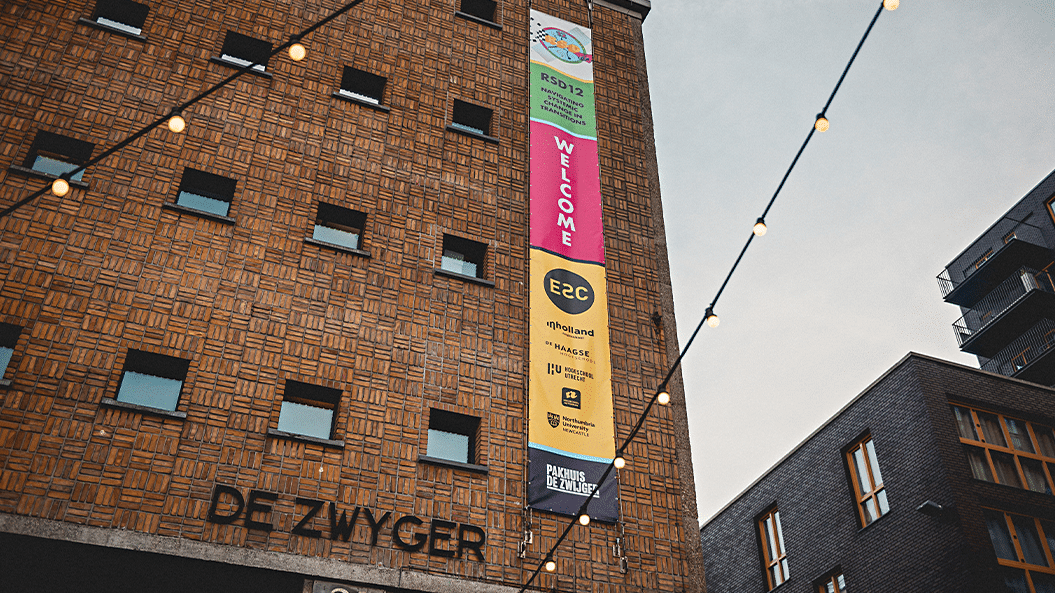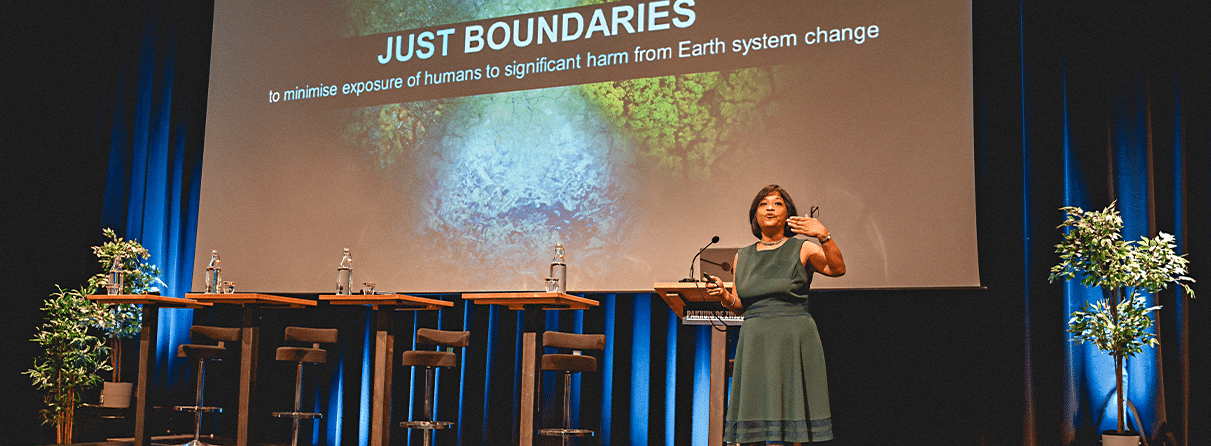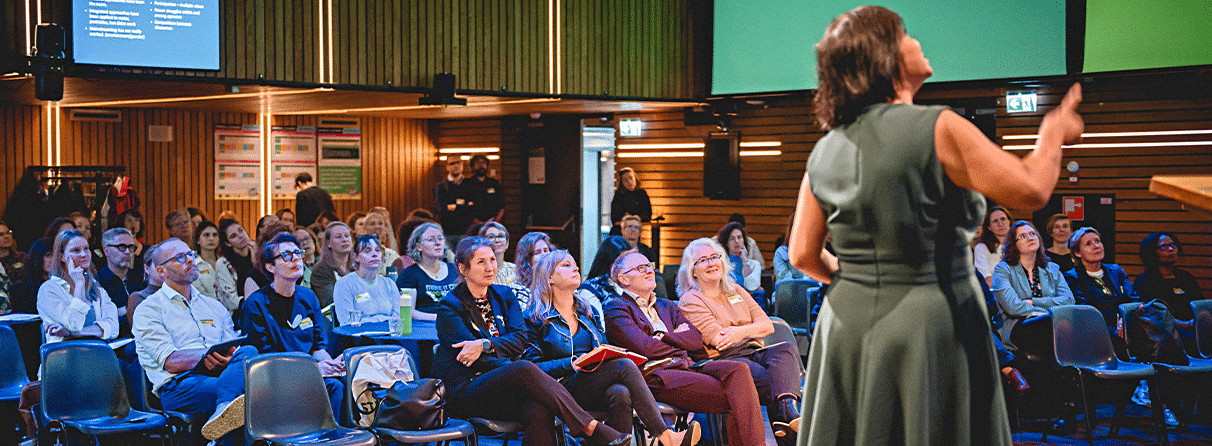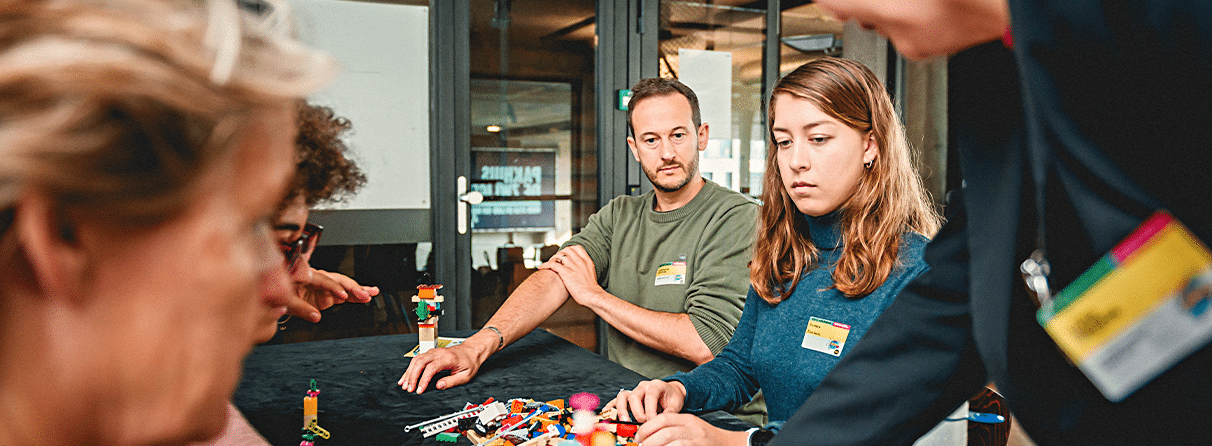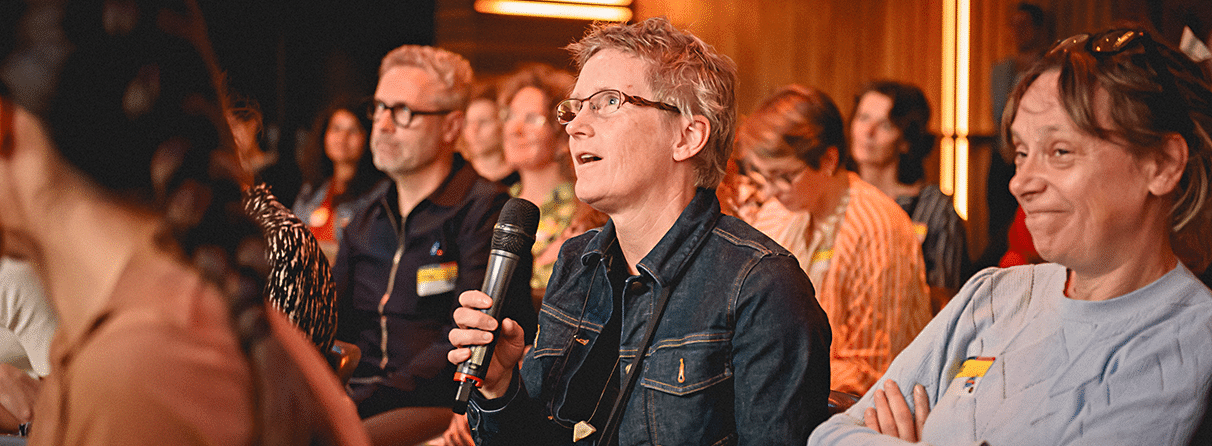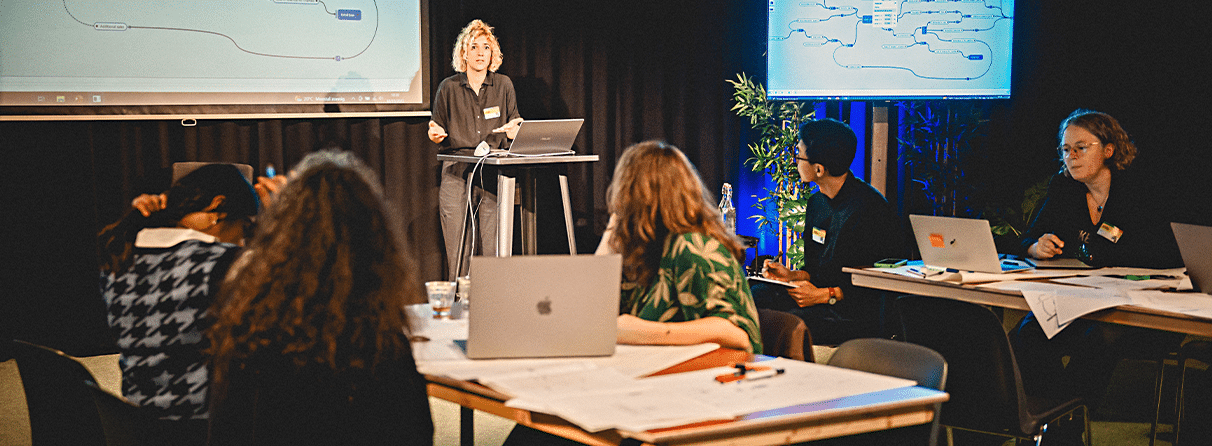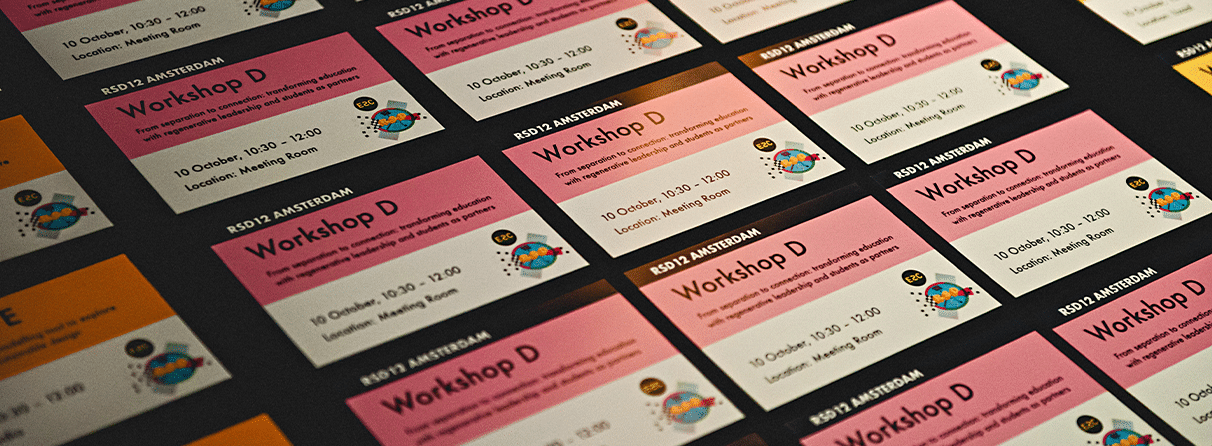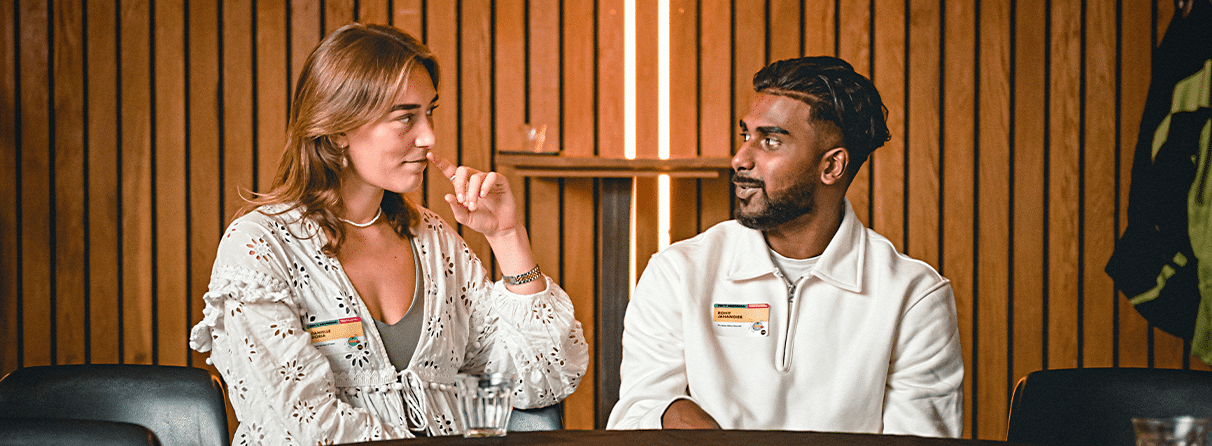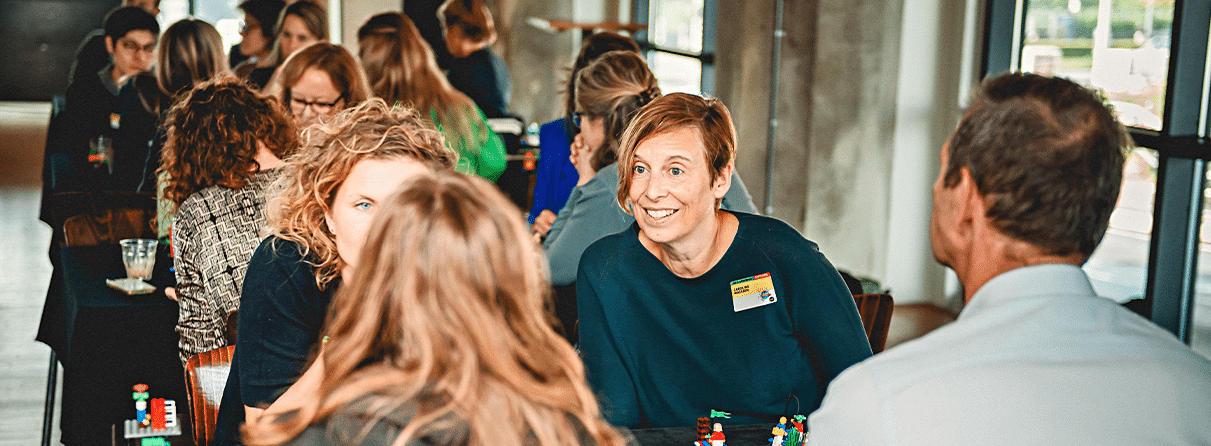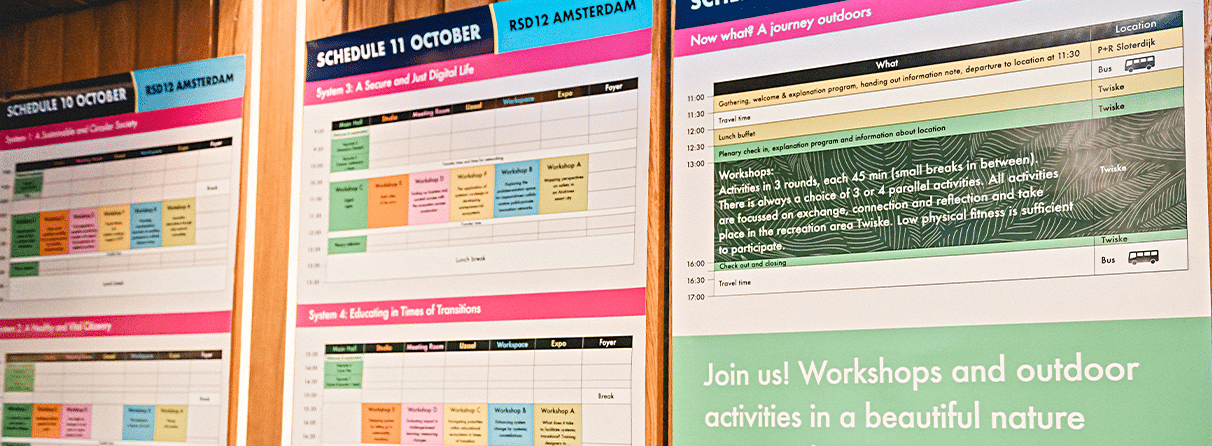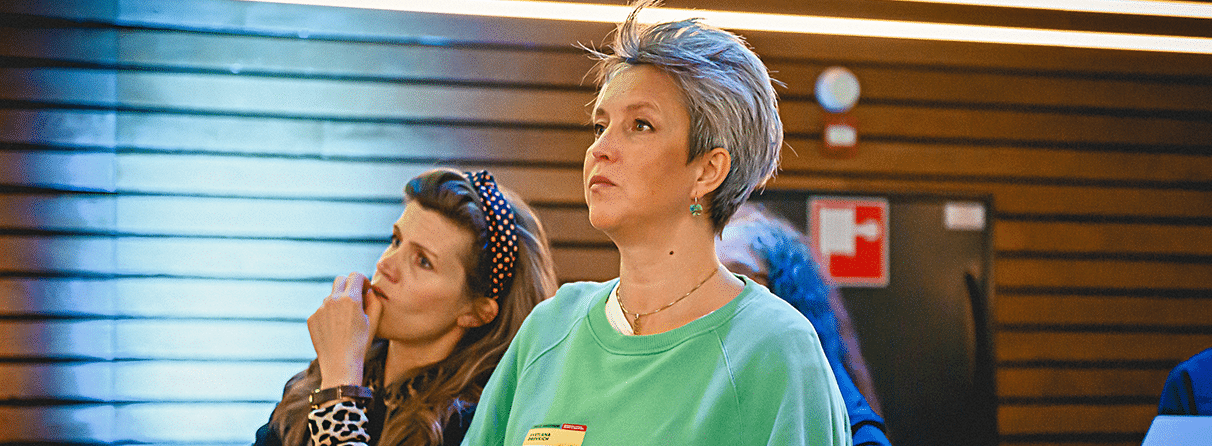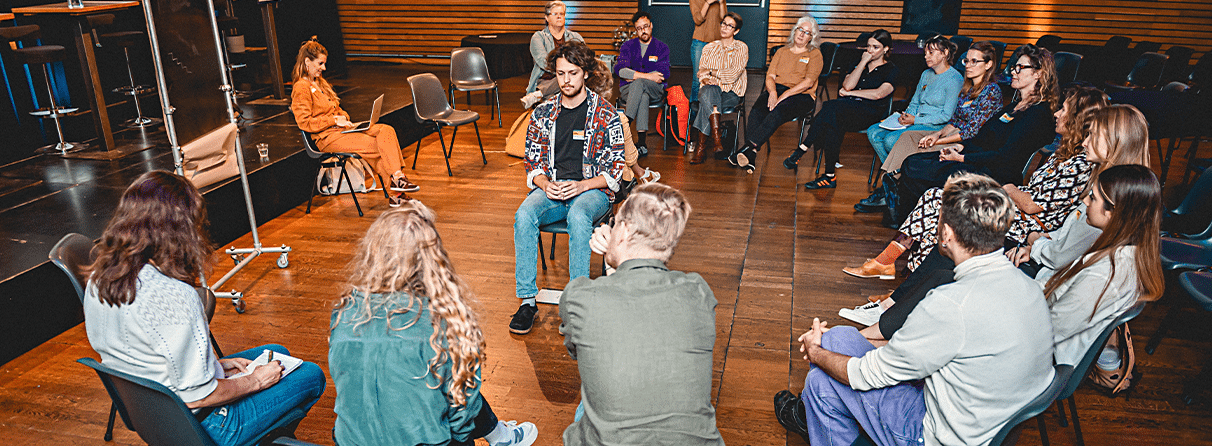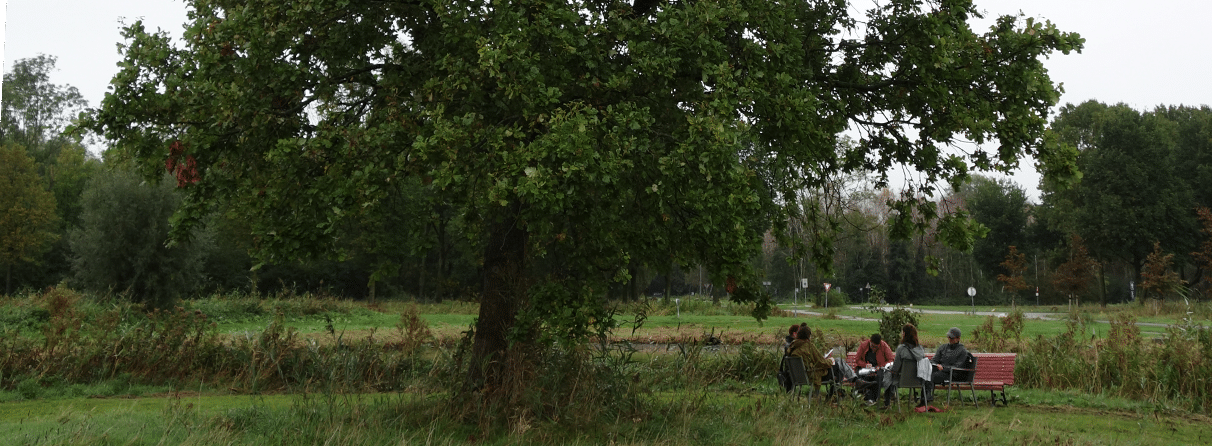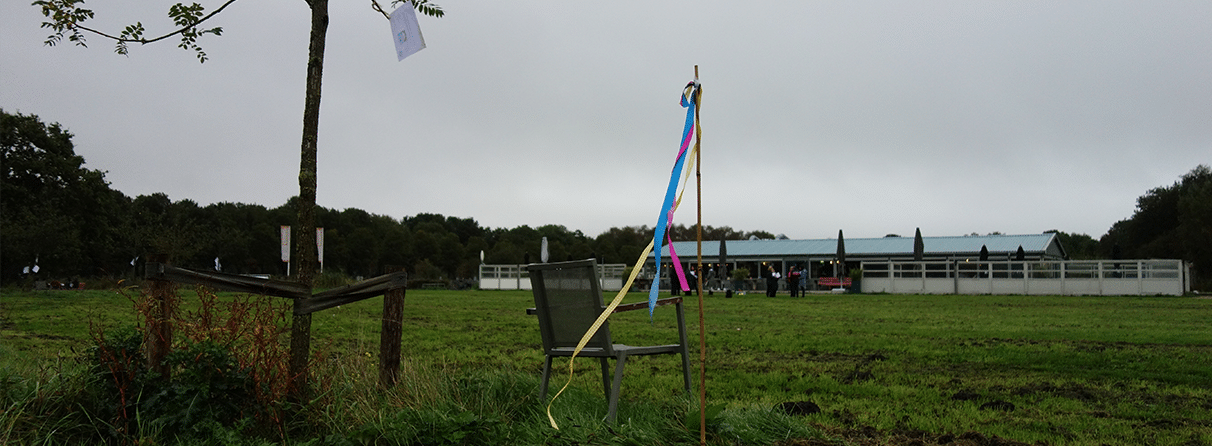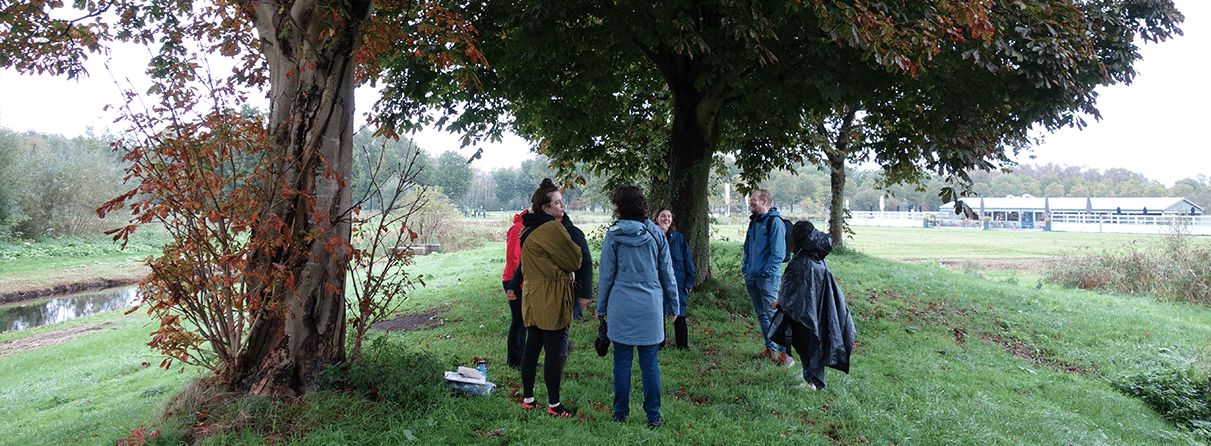During the afternoon we focussed on a healthy and vital citizenry. Where the rebellious Chermaine Kwant told her story of how she survived a deadly disease and the role nutrition played in her journey. She really highlighted what is wrong in our current healthcare system in relation to food. According to Chermaine: Rebels are needed especially when you are living in a system that is stubborn.
Jürg Thölke, Senka Rebac, Remko van der Lugt and their students Rahit Jahangier, Antonia Crivineanu and Daniëlle Doria took us on the journey of their project Students as Partners. In their exercise they wanted to explore what it is like ‘on the line’ in education. By placing participants on a line in the room they let them feel the dynamics between the student and teacher role.
In the afternoon there where five workshops. Check out the links below to read more about them. Our goal is to eventually put all methods on the systemic co-design website.
Workshop A: Playing with Systems
Workshop B: The Emergence of Space – and Such
Workshop C: VR, Immersive Content and Empathy in Dementia Challenges
Each part of the day ended with a plenary reflection, where insights were shared, and one could learn a bit more about the workshops they didn’t attend. Through this collective moment we
In the evening Wina Smeenk also presented her new book ‘The Co-Design Canvas’ at Pakhuis de Zwijger. The Co-Design Canvas is a canvas that can be used by all participants in a co-design session and focuses on creating a shared understanding of the problem and the results or outcome that is desired by the group.
Our second day, the 11th of October, was again filled with great talks and workshops. We started this day with a presentation by Domenico Dentoni and a panel discussion initiated by Tomasz Jaskiewicz on Just digital life. Both keynotes focused on our theme ‘Secure and just digital life’.
Domenico’s story, resilience and transformation, really taught us how to turn sessions into meaningful commitments for change over time. Domenico showed us different ways of engaging with systems mapping, he used it as both a tool, event and as a process. Tomasz took the stage together with Sarah Gies, Jaz Hee-jeong Choi, Pieter van Boheemen, who are all experts in creating a just digital life. A transition is needed to create a equally accessible digital world for everyone. We need new policy, infrastructure and practices to create a society where the individuals rights are safeguarded.
Several workshops focused on the importance of digital rights and such, you can rewatch the workshop by Wina Smeenk on Digital rights soon and check out more about the other workshops here:
Workshop A: Mapping perspectives on safety in an AI-driven smart city
Workshop B: Exploring the Problem-Solution Space for Impact-Driven Collaborative Public-Private Innovation Networks
Workshop C: Digital Rights
Workshop D: Scaling Up Business and Societal Success with the Ecosystem Success Accelerator
Workshop E: Both Sides of the Story
Workshop F: The Application of Systemic Co-Design in Developing Entrepreneurial Ecosystems
During the afternoon the theme was Education in Transition. We were joined by Joyce Yee, who told us more about her learning network around the globe. During her presentation: ‘Designing Systemic Change: Respectfully, sensitively with care’ she showed us that design has the immense power to contribute to systemic change, but design also had the power to cause systemic harm. She showed us how, a world designed for men, can make life for women harder. Joyce gave us more examples of how design tries to change the current system, and where this wouldn’t be beneficial. When designing we must be aware that we are part of the system, at least for the time being.
Joyce’s presentation was followed by a round table with Ana Vasques, Ginie Servant Miklos and Sanne Koevoets who are all working together in the Design Impact Transition platform at Erasmus University. Together they told us the limits and potentials of higher educational systems like the university to contribute to systemic change. Perhaps more importantly, this conversation explored how the potential of universities can be mobilised to make a positive change in the world.
In the afternoon there where five workshops. Check out the links below to read more about them. Our goal is to eventually put all methods on the systemic co-design website.
Workshop A: What Does it Take to Facilitate Systemic Transitions? Training designers to become navigators for systemic transitions
Workshop B: Enhancing System Change by Systemic Constellations
Workshop C: Navigating polarities within educational ecosystems in times of transition
Workshop D: Evaluating Impact in Challenge-Based Learning: Measuring changes in self-efficacy applying inner development goals and Q-methodology
Workshop E: Designing Spaces for Letting Go in Sustainability Transitions
In the evening Bas van der Berg launched his new book Education in Transition. A sold out evening with lots of inspiration, the event was in Dutch but the English translation is expected in a few weeks,
October 12th was a rainy day that started at Amsterdam Sloterdijk. By leaving the conference location behind and fully immersing ourselves in nature participants had the chance to deepen the relationships they had built over the past few days. And to really give space to everything they had learned so far. By taking a meditative walk, participating in a futuring workshop, or contemplating under the chestnut tree there was space to deepen insights that were gained during the first two days.
Marlies and Manon from Nature Academy took us to the beautiful Twiske, near Amsterdam, and provided us with a full schedule of activities. At the end of the day people were full of joy, insights and better understanding of the conference materials. It was great to see so many connections made, and this last day of the conference really felt like a relaxing Sunday afternoon with friends and family.
